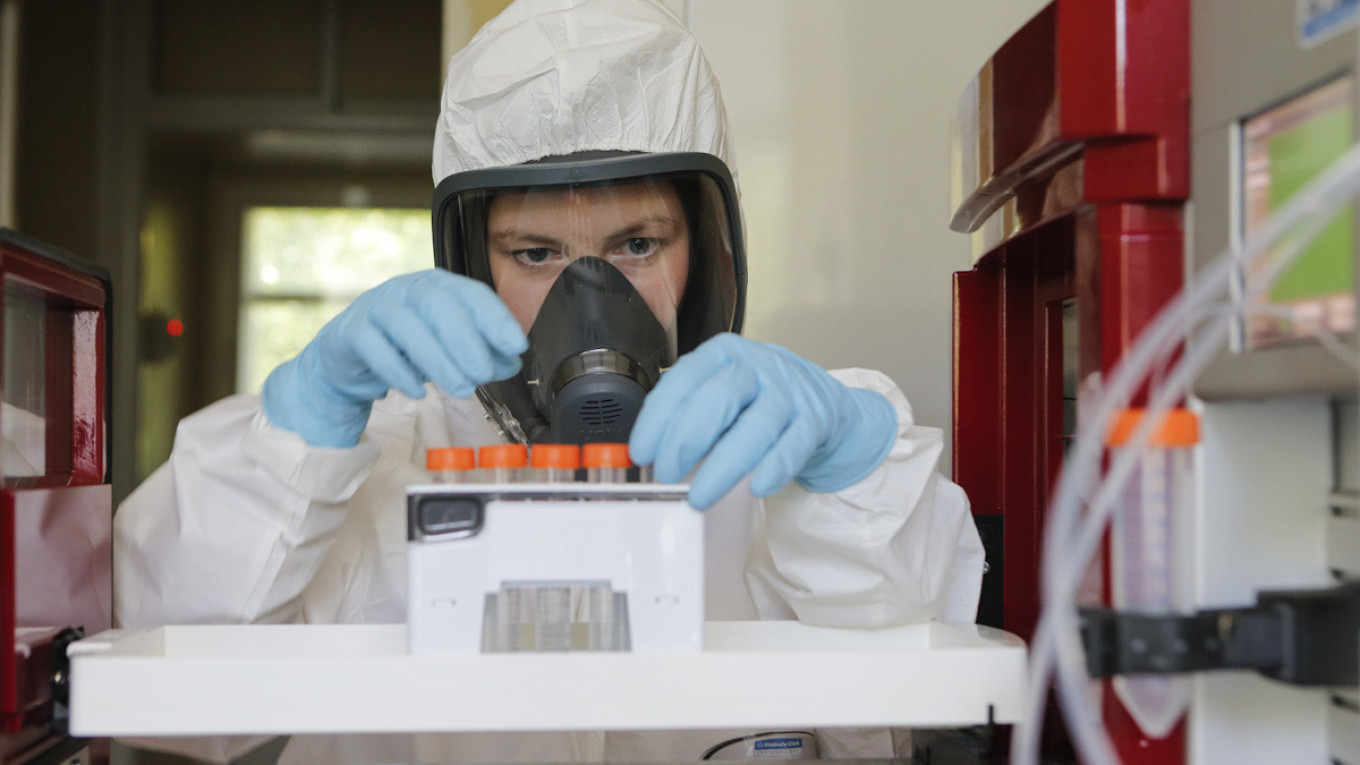Russia will transition to primarily freeze-dried doses of its coronavirus vaccine by spring as a workaround to the logistical challenges of transporting liquid doses at controlled temperatures, Reuters reported Monday.
The Sputnik V vaccine's liquid form must be stored at minus 18 degrees Celsius or below to maintain its stated 92% efficacy. Vaccine storage and transport issues have become a concern after U.S. pharmaceutical giant Pfizer and Germany’s BioNTech announced that their vaccine, shown to be 90% effective, can only survive at minus 70 C.
According to Reuters, Russia has been testing a process of “turning liquid Sputnik V into a dry, white mass that can be stored at normal fridge temperatures” of 2 C to 8 C, which is then diluted and injected.
Kirill Dmitriev, head of the Russian Direct Investment Fund (RDIF) that markets Sputnik V, said that trials showed the “same” immune response to freeze-dried vaccines as to liquid forms.
He added that “a large proportion of doses, if not a majority,” will be freeze-dried starting from February.
Russia plans to produce 2 million doses of Sputnik V by the end of 2020, then ramp up production to 6 million doses per month in spring, officials estimate.
Russia has already begun vaccinating a select group of medics and teachers in far-flung regions in parallel with post-registration clinical trials in Moscow. It has also exported Sputnik V to Belarus, Venezuela, India and the United Arab Emirates.
A late-September test of the supply chain to every Russian region showed that special temperature-controlled containers for liquid Sputnik V doses could maintain a consistent temperature of minus 18.5 C for up to four days, Retuers reported.
“You can’t change the temperature by even half a degree, not even for a minute or a second,” Oleg Baykov, the head of the Moscow logistics and courier firm Biocard which tracked the movements, told Reuters.
“We’re like the Spetsnaz [rapid deployment forces] of the world of medical distribution,” he was quoted as saying.
A Message from The Moscow Times:
Dear readers,
We are facing unprecedented challenges. Russia's Prosecutor General's Office has designated The Moscow Times as an "undesirable" organization, criminalizing our work and putting our staff at risk of prosecution. This follows our earlier unjust labeling as a "foreign agent."
These actions are direct attempts to silence independent journalism in Russia. The authorities claim our work "discredits the decisions of the Russian leadership." We see things differently: we strive to provide accurate, unbiased reporting on Russia.
We, the journalists of The Moscow Times, refuse to be silenced. But to continue our work, we need your help.
Your support, no matter how small, makes a world of difference. If you can, please support us monthly starting from just $2. It's quick to set up, and every contribution makes a significant impact.
By supporting The Moscow Times, you're defending open, independent journalism in the face of repression. Thank you for standing with us.
Remind me later.






